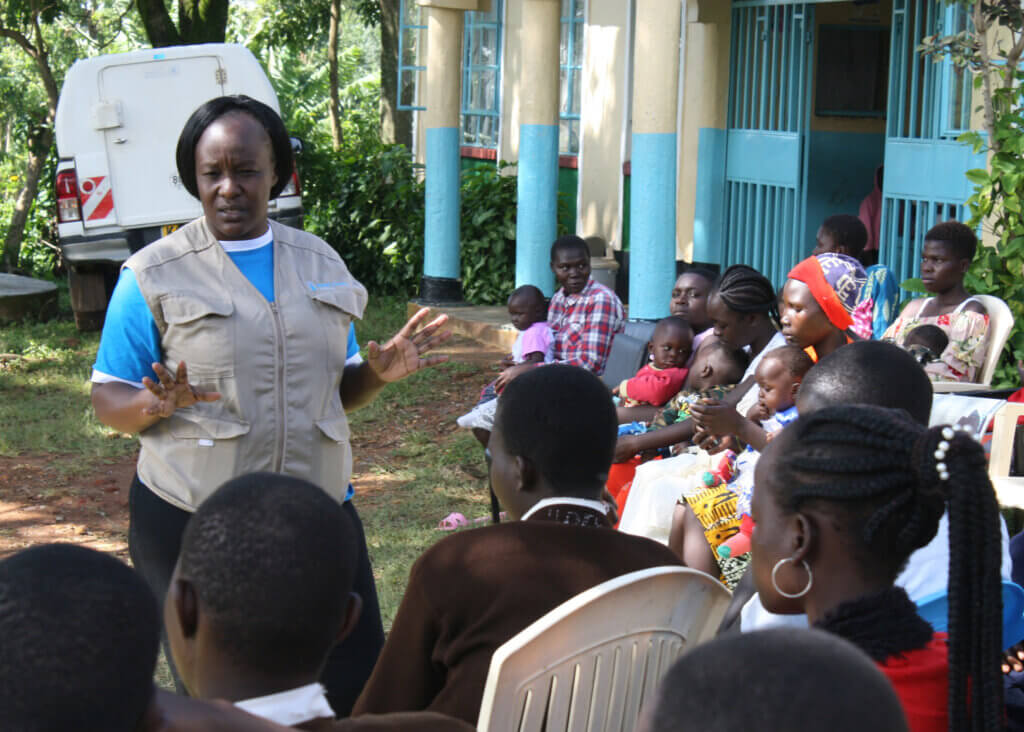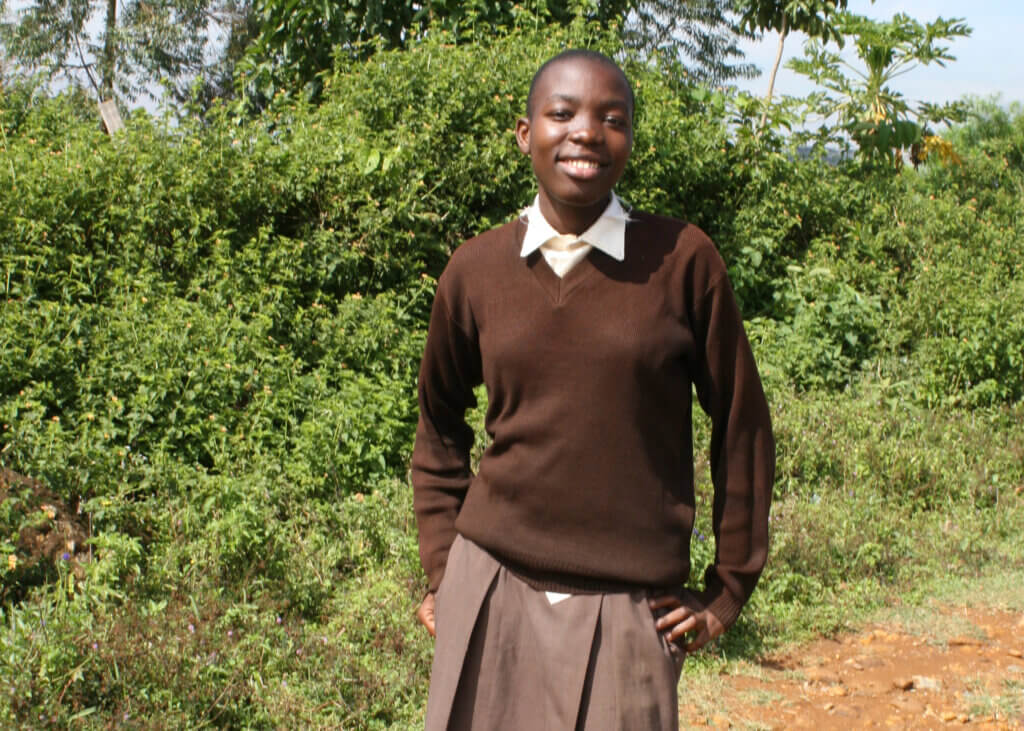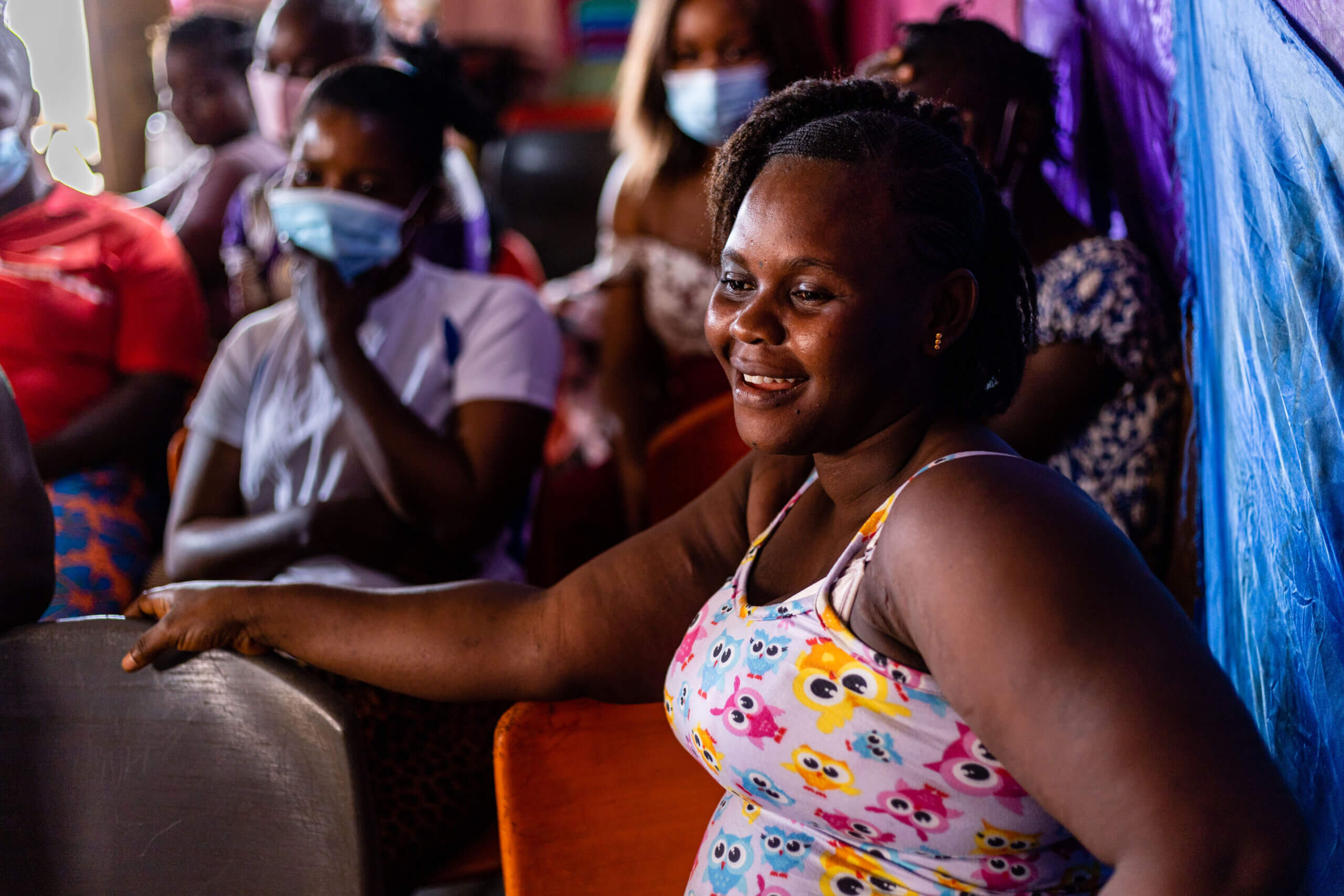On the road with Meg Ryan’s Empowered
“If you empower women, you can change the world.” — Meg Ryan
The town of Kisumu sits on the edge of Lake Victoria in western Kenya. It is the third largest city in Kenya and famous for being the birthplace of President Barack Obama’s father.
I was there, 7,600 miles from my home in Michigan, to shoot a video with Empowered, a video company that produces educational video content for PBS. They had reached out to MSI United States to ask if we would be interested in working with them on a video for their series on women’s empowerment. The video would center on the impact of access to contraception and reproductive choice on girls’ education and it would be hosted by the screen actress Meg Ryan. Of course we said yes.
A few short months of planning later, I found myself bumping along the road out of Kisumu with the production crew and members of the MSI Kenya outreach team. Gabriel, our driver navigated us through the riot of tuk-tuks—three wheeled motorized rickshaws—and boda-bodas—the motorbikes that are ubiquitous in Kenya and piled alarmingly high with all kinds of materials. We actually saw a person on a boda-boda transporting a sofa! The trip took us north through tiny villages and farmland. We saw cows and goats grazing by the side of the road and crossed the equator, past Maseno University, the “only university located on the equator” on our way to the Lihanda Health Center.
Lihanda Health Center is a public health center supported by non-governmental organizations (NGOs) like MSI, several miles off the paved road in farm country. At the center, they provide basic healthcare services including pre-natal care, standard childhood vaccinations and treatment for malaria. MSI Kenya had arranged an outreach event there for young women to come learn about their options for family planning and receive the care they chose. We would be interviewing the women and MSI team members for the video.

It was a busy day at Lihanda. In addition to our contraceptive outreach activities, Debra Oyugi, the Regional Marketing Coordinator with MSI Kenya had arranged with the Youth Advisory Committee on Health for the county for a group of adolescent school girls to come for a sexual reproductive health education session. Teen pregnancy is on the rise in the area, and communities and schools have organized health clubs where girls can learn about contraception and how to prevent sexually transmitted infections and HIV/AIDS. In every one of the 36 countries where MSI works, we partner with the community and other organizations to achieve our goals of ending unsafe abortion and ensuring that everyone who wants contraception can access it. Working together helps us deliver reproductive choice to adolescent girls who can be difficult to reach otherwise.
The girls arrived at Lihanda on foot and took seats on the plastic chairs arranged in the yard in front of the center. They were quiet and shy to start, not sure what to expect. But, soon, Debra had them laughing and raising their hands with questions.
We met Anne, a student in her fourth and final year of secondary school. She had come to Lihanda to learn how to prevent pregnancy. She was hoping to continue on to university and didn’t want an unintended pregnancy to get in the way of achieving her dream of working with a charitable organization that helps others. One girl told us that “abstinence only happens during school hours, once out of school, girls engage in unprotected sex.”

While we were busy making our video, the outreach team was busy too, providing services, mostly contraceptive arm implants, to more than 50 women. We chatted with the women to find out why they’d made the long journey to the center that day. Young mothers talked about wanting to avoid future pregnancies because they had all the children they could support and educate. They spoke of wanting to provide their children with more opportunities.
Over and over again, we heard stories of young girls who had been forced from school because of pregnancy, and women who were struggling to care for the children they already had. Everyone we spoke with had a story to tell about the devastating impact of unplanned pregnancy. We were told that there were few options for the services MSI was providing and even fewer services available for the adoption of unwanted babies, pushing children and their mothers into a cycle of poverty that is almost impossible to escape.
I found myself thinking how inexpensive it is to provide a woman with the contraception that will allow her to continue on the path she has chosen for herself. $8 for a year of freedom from the worry of getting pregnant unexpectedly and a chance at a life she controls. $8 for another year of education. $8 for a year to recover from childbirth and provide care to an infant.
Looking across the yard I saw young mothers who, just like mothers everywhere, wanted the best for their children. I saw the group of teenage school girls, laughing and teasing one another, full of hopes and dreams, I thought how much they were like my own daughter and her friends. I knew I would return to the United States changed by this experience, resolved to work harder so that these women and girls and the millions of others who want to take charge of their bodies and lives have that choice.






